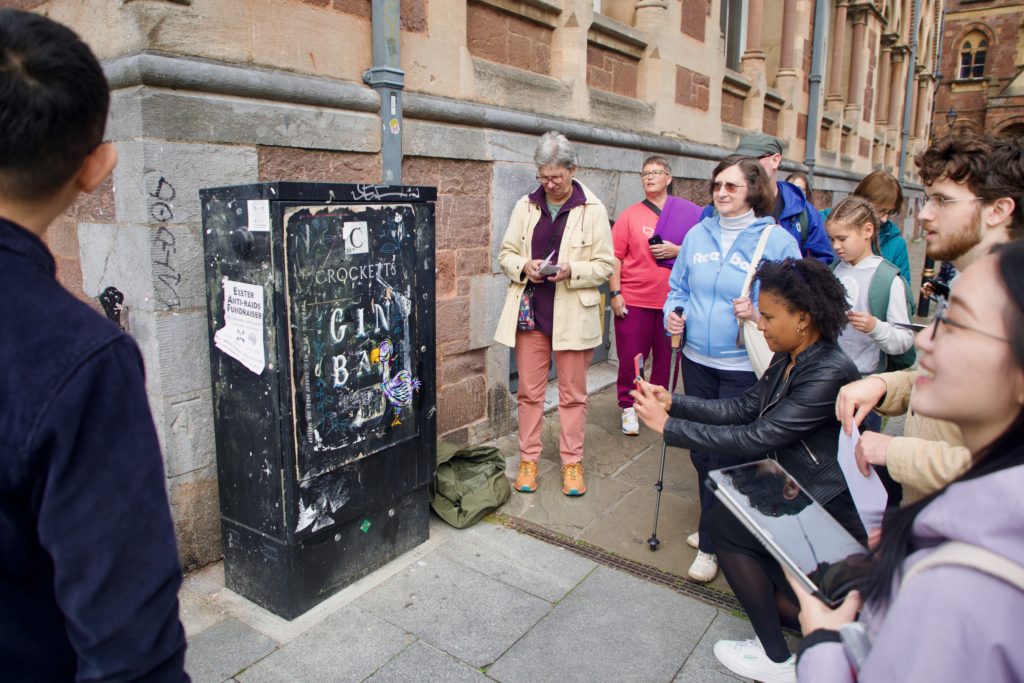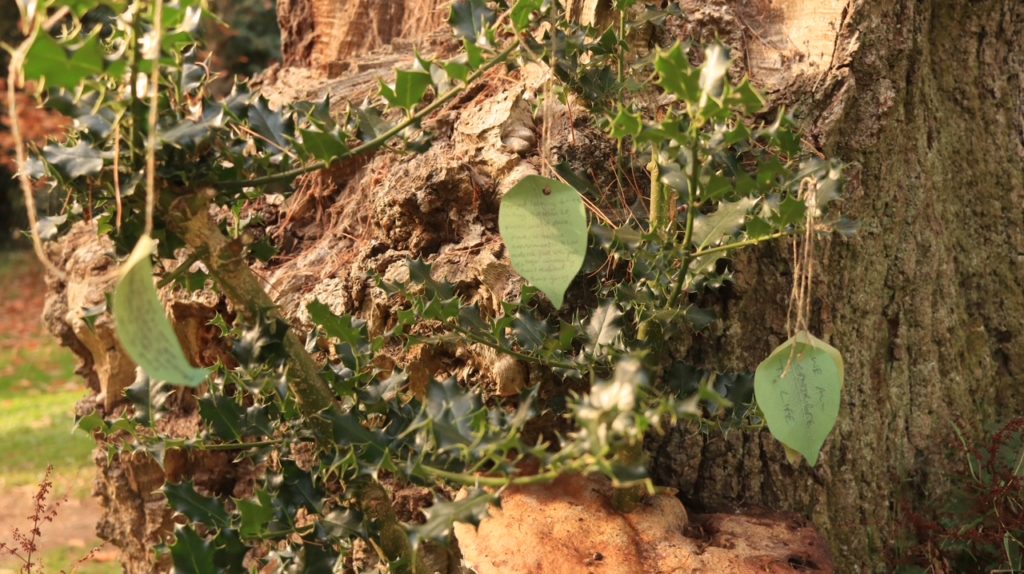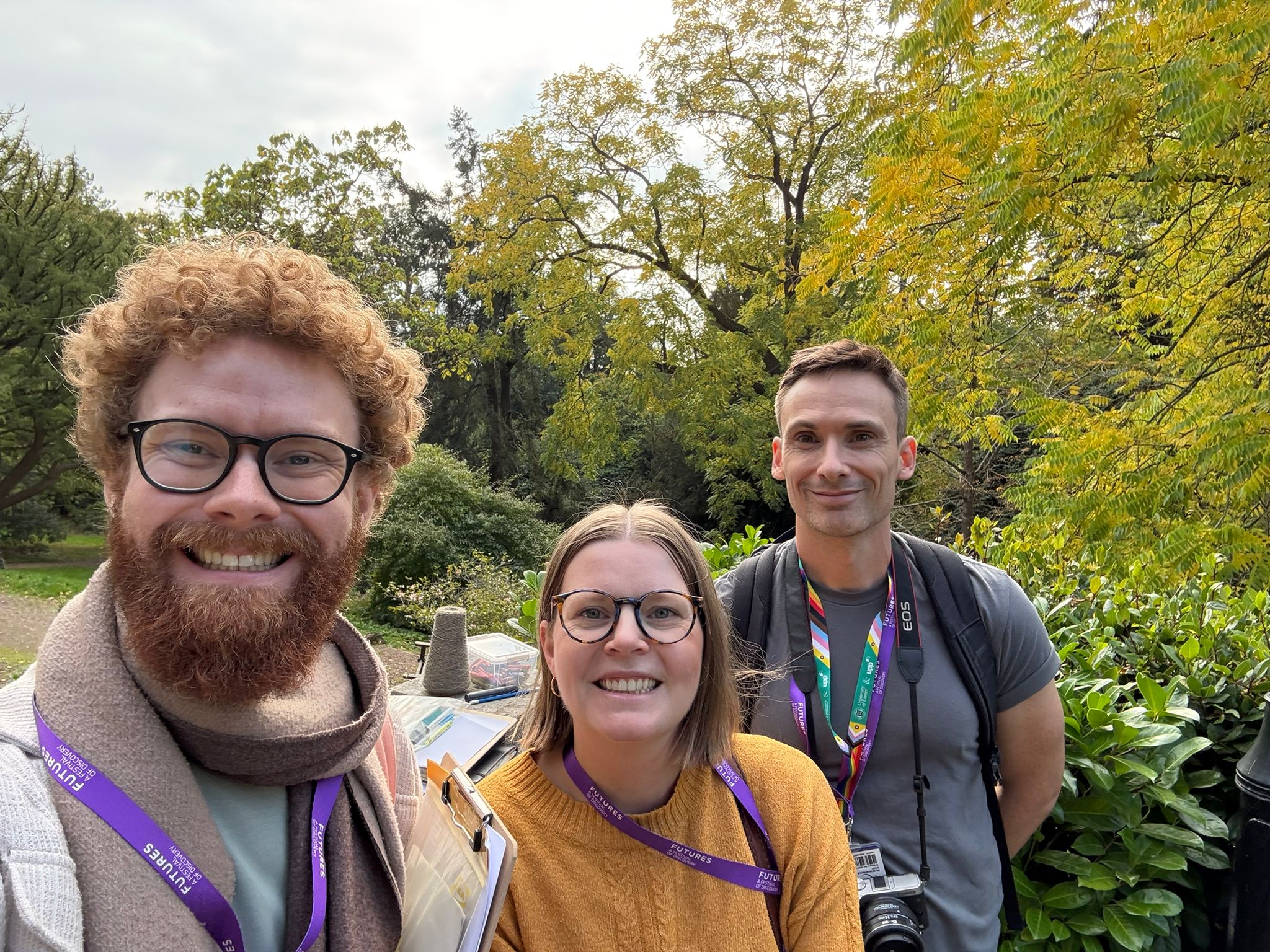Walking tours can be a novel way to communicate directly with communities, and invite audiences to discover research in a unique way. Whether you are looking to highlight the science behind local wildlife, or overlooked corners of our city streets, they can help encourage reflection on a range of topics.
Walking tours are a longstanding component of the FUTURES Festival and beyond, with organisations like Agile Rabbit collaborating with researchers across the region to bring research out of an academic setting. Attendees of our recent FUTURES celebrations commented on how this act of walking through research “helped concentration”, and that they “really enjoyed learning more about the city I call home!”
The three examples below showcase how FUTURES 2025 used walking tours to share research from across the University, taking it to the streets of Exeter.
Sensing Exeter’s Air Quality: A Bird’s View
Combining art and science, this tour took air quality monitors to the streets, so participants could investigate air pollution around Exeter, while discovering recent bird artworks created by local artist, Steven McCracken. The walk combined research from the Department of English and Creative Writing, and the Department of Public Health and Sport Sciences, and builds on work from the SmogOff project, formed alongside non-profit group, Then Try This. Many praised the tour’s “collaboration between science and art”, with one visitor describing the event as “an interesting opportunity to explore my city in a different way”.

Honey Bees, Hornets, and Deep Learning
Our second walking tour draws on the world of ecology, discussing how deep learning is being used in the UK to monitor the health of its pollinators and support healthy biodiversity. Dr Thomas O’Shea Wheller took audiences around Exeter, showcasing the impact of the natural world even in the heart of the city, and encouraging them to play their part in supporting native pollinator populations. This tour was suitable for nature lovers of any age, and one participant commented that it was “Nice to go to something sciency that’s at a high enough level to be engaging for adults”!

Out in Nature
Unlike the other walks featured here, the Out in Nature trail took place not in the city centre, but at the University’s own Streatham Campus. The trail forms part of the Queer Natures project, and draws on the campus’ rich history and connection to LGBTQ+ legacy and identity. While the FUTURES tour focussed on three key points of the trail, which was created in collaboration with students, researchers, visitors, and the grounds team, there are many more sites to explore. In fact, several participants were keen to try the rest of the trail for themselves, and commented on how this “thinking crossed boundaries”, and encouraged a new way of reflecting in nature.
FUTURES is a free festival of discovery which takes place across venues in Bath, Bristol, Cornwall, Devon, Exeter and Plymouth, funded by the UKRI.


